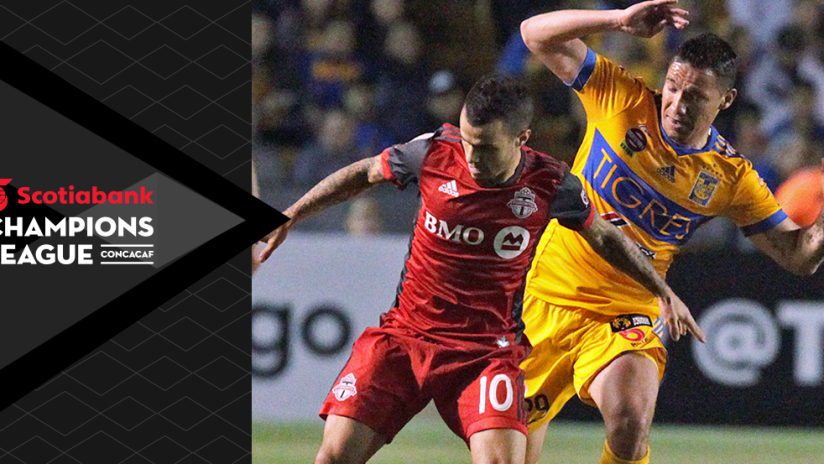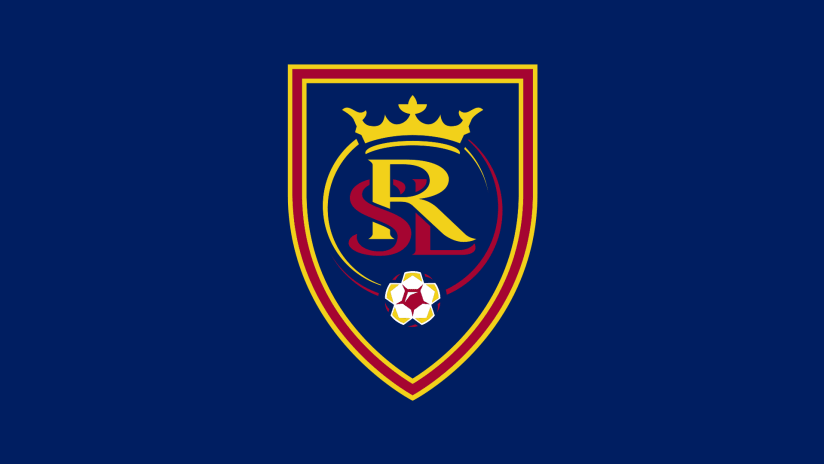I could barely get out of bed Wednesday morning. I was burning up, covered in goosebumps with chills undulating, from head to toe. Before I reached for my phone – don’t lie, you do it, too – a singular question flashed across my mind: “Were those #CCLFever-induced dreams or real life?”
Tuesday night was real all right, but I imagine many of you feel similarly today, following unprecedented series victories that sent the New York Red Bulls and Toronto FC to the Concacaf Champions League semifinals at the expense of big, bad, damn-near unbeatable Liga MX. Thrilled, of course, but understandably a little bit incredulous all the same.
For years, those of us who stayed up late on weeknights to watch matches in places like Tegucigalpa, Kingston, Kansas City, San Jose, Monterrey, Vancouver, Panama City and just about everywhere in between took masochistic pleasure in a tournament that seemed destined to disappoint. We watched with our collective cores clinched, waiting for the inevitable gut punch, the moment hope evaporated and a barrage of goals, a bizarre referee decision or just plain bad luck ended MLS’s title chase yet again.
Call me pessimistic – I’d argue realistic – but deep down, I expected the same on Tuesday night; prepared for another night of commiserating on Soccer Twitter after first-leg results seemingly put the semifinals in reach, only to have advancement cruelly snatched away.
Thankfully, I was reading from an old script. After years of banging our collective heads against the wall, finally it was MLS that took on the leading role.
Club Tijuana put the pressure on early to register a goal that might have rattled the Red Bulls of seasons past, but that proved all Xolos could muster. This time the late flurry of goals came via the teenage tenacity and iron lungs of Tyler Adams, whose tap-in on the counter reinvigorated the red side of New York, and the veteran know-how of Bradley Wright-Phillips, whose pinpoint passes set up Marc Rzatkowksi and Kaku for goals that made New York the first MLS side to win both games of a home-and-home series against a Liga MX opponent.
“We’re not done,” said Red Bulls head coach Jesse Marsch, whose team awaits either the Seattle Sounders or Chivas Guadalajara waiting in the next round. “It’s only the quarterfinals.”
Toronto, meanwhile, didn’t have the comfort of home on their side. The Reds went to Monterrey knowing they’d need to summit El Volcan (the Volcano) against Tigres, arguably the best team in this hemisphere. They needed some luck (Carioca’s own goal), some quality (Sebastian Giovinco’s postage-stamp free kick) and the away-goal rule to advance, but nobody can argue who the better team was after a professional performance over two legs that earned the respect of Tuca Ferretti.
“If we look at the 180 minutes carefully, we know Toronto were better than Tigres,” said the legendary manager, of a matchup that could be rehashed in September at the first-ever Campeones Cup. “[They showed] emotional intelligence, tactical order, team management and a star that shines in the biggest moment.”
I’ve said it before, but this time it feels different: Something has changed, a shift is underway in a region long ruled by Liga MX. MLS may not yet be over the hump – only a title this year and a repeat in the coming editions will convince me otherwise – but the league’s improvement cannot be denied.
Maybe it’s quality, a seven-figure injection of Targeted Allocation Money (TAM) providing the game-changers and depth needed to even the playing field between MLS and the Mexican teams that seemed to take delight in asserting dominance over their northern neighbors.
Maybe it’s mentality, the likes of Adams, Chris Mavinga, Wright-Phillips, Michael Bradley, Luis Robles, Giovinco and countless others – DPs, TAM players, SuperDraft picks and Homegrowns – willing their teams over the finish line when those who came before them wilted under the pressure.
Maybe it’s down to the managers, the vision and leadership of Marsch and Greg Vanney establishing a tactical foundation and organizational structure that gave their players the stability and belief to succeed.
Maybe it’s all a mirage. This tournament is a mechanism for MLS disappointment, after all. The Sounders' faceplant in Guadalajara was a good reminder of that.
I was part of #MLS4RSL when Real Salt Lake made history by becoming the first MLS team to reach the final in 2011. Javier Morales’ late goal in Monterrey to even the series 2-2 was rightly celebrated, but Humberto Suazo didn’t care. The Chilean scored just before half at Rio Tinto to break our hearts.
I was at Estadio Azteca in 2015 when Ignacio Piatti and the Monteal Impact grabbed an all-important road goal against Club America, and at Stade Olympique for the second leg of the final when Andres Romero made a packed house believe it was finally MLS’s time to win the whole thing. Spoiler: it wasn’t.
Tuesday night was the moment years of struggling against Mexican hegemony paid off in a big way, but it was far from the ultimate reward for all the time, money and effort MLS has put in over the last decade. There remains the distinct possibility that an MLS team won’t play in the final. Club America and Chivas are already salivating about a SúperClásico with a spot in the Club World Cup on the line.
“We're not going to over-analyze, pretend like we've won anything yet; not even close,” Bradley said. “It's a quarterfinal against a very good team, but when you win a quarterfinal, all it gets you is the opportunity to play in a semifinal.”
He’s right, of course, but that won’t keep us from celebrating Toronto FC and the Red Bulls' success. All I ask is that, as you do so, hold on tight to what Liga MX has always known about this competition:
It doesn't mean anything unless you win the whole thing.













